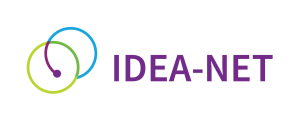Maynooth University – Kildare, Ireland
In the last two years the programme has carried out multiple activities with regard to equal access, inclusion and diversity, such as:
- Support and counselling for students and university staff
- Lectures, workshops, seminars for students, faculty and non-teaching staff
- Training courses for peer educators
- Public promotion (e.g. production of media content such as podcasts)
- Improving physical and digital accessibility
In addition to these activities to support inclusion, the programme also implements strategy/ action plans and recommendations/ guidelines to counter exclusionary and discriminatory practices at the university, as well as implementing the innovative practise/tool called the Active Consent eLearning module for students to support themselves and their peers with regard to sexual violence and harassment.
Maynooth University Access Programme
Kildare, Ireland
IDEA-net: Expanding the network of Inclusion, Diversity, Equity and Access (IDEA) practitioners in higher education through institutional capacity building
Project ref: 2022-1-NL01-KA220-HED-000089789

This project has been funded with support from the European Commission. This website reflects the views only of the authors, and the Commission cannot be held responsible for any use which may be made of the information contained therein.
